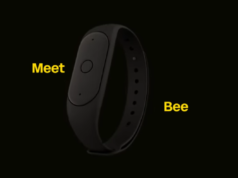Farm drones, autonomous security guards and next-generation tampons were among the products presented at today’s Y Combinator startup accelerator Summer 2016 Demo Day 1.
YC’s increased international outreach efforts are paying off. 30 percent of this batch’s startups came from outside the US. While some were mere copycats of US startups, many brought different approaches to classic problems.
YC president Sam Altman
Today’s startups were focused on consumer, developer tools, security, hardware, marketplaces, and non-profit. We’ll see a different set tomorrow concentrated around enterprise, B2B, biotech, edtech, and fintech.
Investors had mixed reactions, with few saying they saw startups they were truly wowed by. Yet most admitted that past YC success stories were tough to spot on Demo Day, so we might not know the quality of this batch for a few more years.
One major innovation at Demo Day: they’re now offering Doblet portable chargers so investors don’t have to worry about their phones dying or camping out by the power outlet like the TechCrunch crew.
Here are all 44 of the startups that presented on-the-record today:
Joy – Software eats wedding planning
Weddings can often seem to lead to temporary insanity. Joy is building a tool to help couples plan everything that takes place in-between the engagement and the honeymoon. The company’s marital software suite has seen some major growth over the past several months with about 150 happy couples joining the service daily to manage their RSVPs, track guests and keep everything organized. Joy is now looking to break into the $14 billion wedding registry market where they see even more potential to earn healthy commissions. Joy could disrupt the crooked deals where wedding planners book vendors who give them a bigger cut rather than giving the bride and groom the best price.
Read more about Joy in TechCrunch
Flex – The modern tampon
The tampons women use have seen very little innovation over the last eight decades. Flex has created a tampon replacement set to a subscription model. The company has already sold $70,000 worth of product through pre-orders and has successfully navigated the FDA approval and patenting process. Flex wants women to be able to forget about their periods so they can take advantage of every minute of every day. Traditional tampons can make sexual activity tricky, be messy, and even cause infections. Their disposable menstrual product can be worn for 12 hours and is non-invasive, comfortable and healthy. In a few weeks women will be able to receive shipments of the tampons for $20 per month and the Flex touts 70 percent margins on the product.
Read more about Flex tampons on TechCrunch
JustRide – Getaround for India
Just six percent of adults in India own a car, but as more of the population reaches the middle class, more people want to drive. JustRide is a peer-to-peer car rental marketplace that takes a 25 percent cut of rental fees. The $500 a month that users can earn on JustRide is the same as the average monthly earnings in the country, so it lets users effectively double their wages. The startup’s proprietary IoT device lets it monitor driving behavior and blacklist adrenaline junkies. JustRide already has over 7,000 rentals a month in just three cities, but it’s chasing the full $18.5 billion yearly car rental market in India. While it’s a clone of America’s Getaround, India’s a big enough market to warrant its own competitor.
Exponent – Unity for mobile apps
Too often, apps that strike it big on mobile stifle their growth by focusing their scant resources on launching with only an IOS or Android app. Exponent want to make it super simple for mobile developers to build out iOS and Android versions of their app while only coding in JavaScript. The free open-sourced software uses React Native, a framework for building native apps that’s used by companies like Facebook, Airbnb and Walmart. The service just came out of beta this week. Led by early Facebooker and Quora co-founder Charlie Cheever, Exponent has an enviable team.
Airfordable – Payment plans for travel
Everyone universally enjoys relaxing on the beach with a mint julep, but not everyone has access to the same disposable income necessary for travel. Airfordable was born as a payment plan service to support travel for people that have limited credit or limited savings. The service lets wannabe travelers upload a flight itinerary and create bi-weekly payment plans that push payments off up to three months. Tickets are distributed only when the payment plan is successfully completed. After reaching profitability and booking $500,000 in sales, the company wants to increase spending to push into financing plans for hotels as well. The company has partnered with an insurance company that is accountable for default risk and is growing at 53 percent month over month.
Read more about Airfordable on TechCrunch
GoGoGrandparent – Dial-a-rideshare
Senior citizens want independence, but many aren’t versed in using smartphone apps like Uber. GoGoGrandparent lets seniors call via phone to book a ride, which the startup books through existing car services. With a 50 percent margin, Go Go Grandparent is growing 12 percent week over week, and 21 percent of first time users stick with it. Now seniors are asking for help getting groceries and medicine, giving GoGoGrandparent adjacent markets to expand into. Though seniors might get better at smartphones, Go Go Grandparent thinks it can be the layer between them and the on-demand economy.
Read more about GoGoGrandparent on TechCrunch
ZeroDB – Encrypted enterprise cloud storage
The cloud can be a scary place when it comes to keeping enterprise information secure. ZeroDB ensures that companies with sensitive data can move their operations to the cloud without having to worry about compromising overall security. ZeroDB encrypts data and moves it to the cloud while keeping the decryption keys on location. The company announced at demo day that they are already in the process of partnering with a UK bank for an operation that will bring in $1 million annually for the company.
Fabric – A network of searchable memories
In today’s day and age, companies with millions in resources like Google’s Calico are working on combating diseases related to aging like memory loss. A team of ex-Facebook timeline engineers wants to use what they know to create a solution far simpler than drug synthesis. Fabric is an automatic journal that captures experiences and interactions, including GPS location, to generate a complete searchable profile of memories. The app has been one of the top trending apps in the app store and has seen over 1.5 million new real-time checkins.
Read more about Fabric on TechCrunch
Skylights – VR as in-flight entertainment
Those tiny seat-back screens cost airlines a fortune because of installation and the weight they add, and they make you feel trapped on the plane. Skylights has developed its own VR headsets and software so passenger can strap in and watch 2D and 3D movies on a giant virtual screen. Skylights has already outfitted 100 flights for 4 airlines, and its current deals for 15 flights a day will bring in $1 million a year in recurring revenue. With a founder who was a former commercial pilot and airline exec, Skylights wants to make VR in-flight entertainment good enough to become a differentiation point.
Haywheel – Artisanal food marketplace
Fantastic restaurants need fantastic ingredients, but the hardest part for chefs should be cooking the food not sourcing it. Haywheel is an online marketplace for artisanal foods that makes it extra simple for top-notch restaurants to score the choicest of lobster or tortellini. The company already has more than 300 restaurants using the service, including a few Michelin-starred establishments. Hay wheel takes a 10 percent commission on the food purchased through the marketplace. The service launched last week and is already planning its move to open the program to the $5 billion specialty food store market.
DevColor – A non-profit for attracting and retaining black talent
Most people in Silicon Valley recognize that the technology industry lacks diversity, but many don’t push themselves and their co-workers to change the status quo. A plethora of bay area tech companies are employing strategic recruiting to solve the problem but many companies have actually seen diversity stagnate and in some cases even decreased in recent years. DevColor wants to employ a non-profit structure to offer interview preparation and career strategy advice to help companies attract and retain black engineers. The company is working with 114 software engineers and has closed sponsorships with mainstays like Pinterest, Collective Health, and Uber to ultimately reach long-term sustainability by the end of the next two years.
Read more about DevColor on TechCrunch
Iris Automations – Collision avoidance drone technology
Commercial drones will grow to a $23 billion business by 2020 for agriculture, infrastructure inspections, and delivery. But many drones still fly blind, dependent on pilots. Iris makes a tiny box that can be added to a drone to give it sense and avoid capabilities. It uses computer vision and deep learning tech to create real-time 3D maps around drones and track objects up to 2000 feet away. It’s already in the air, with a live paid alpha program. Drone hardware manufacturers won’t all be able to make the smartest brains, but Iris could help.
Read more about Iris Automations on TechCrunch
Techmate – your technology concierge
Setting up IoT devices sucks. It’d be fine if they kept working but as soon as your wifi goes down or power goes out, something is sure to get screwed up. Techmate wants to bring a more sustained level of tech support to consumers with smart homes. The company says that connected devices…






